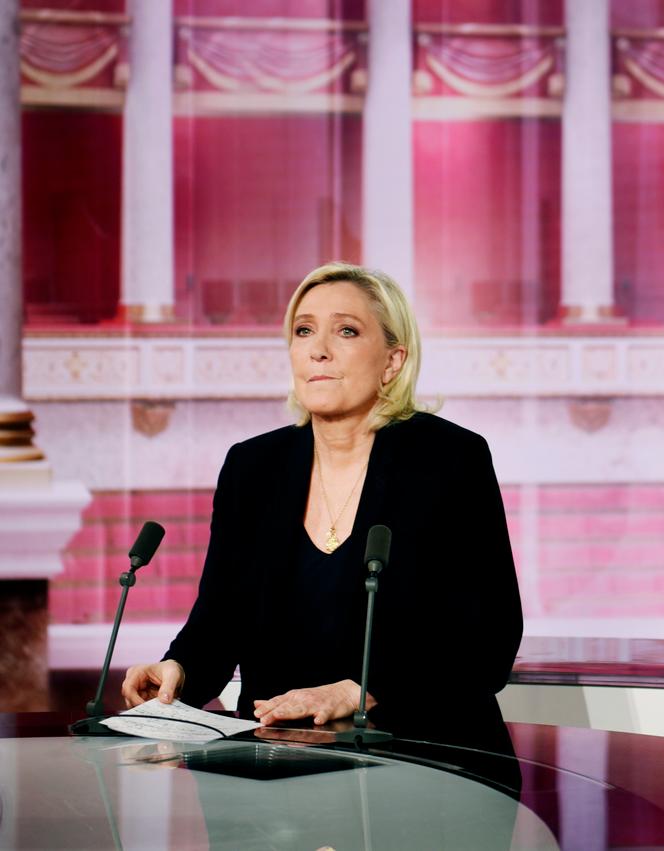


Within the far-right Rassemblement National (RN) party, only one voice speaks with any authority on international issues. Forty-eight hours after the fall of Syrian dictator Bashar al-Assad, that voice remained silent. Marine Le Pen had not yet publicly reacted to events in Syria, refraining from commenting on the overthrow of a regime that far-right networks have always supported. Just like left-wing leader Jean-Luc Mélenchon, though he stands on the other side of the political spectrum, Le Pen has always considered al-Assad to be a lesser evil, or even a potential partner.
When questioned by Le Monde about her prolonged silence, Le Pen spoke of a "relatively complex" situation, saying she was "astonished by the speed and imprudence of certain reactions," whether from the French authorities or her own party members, who had been too talkative for her liking. The RN leader said she "never supported" al-Assad, but acknowledged having considered him to be a bulwark against jihadism. She added that has little faith in the promises of Syria's new leading figure, Ahmed al-Sharaa, whose nom de guerre was Abu Mohammed al-Jolani, leader of the rebel forces.
The day before, RN party chair Jordan Bardella described al-Assad's fall as "a geopolitical catastrophe," because of the "migratory risk" it would pose for Europe. Neither far-right leader has dwelt on the suffering al-Assad inflicted on his people, nor on the role his regime has played in driving millions of Syrians into exile.
Since rising to head the party co-founded by her father, Marine Le Pen has always viewed Arab revolutions with skepticism, saying she prefers "a secular dictatorship to an Islamist dictatorship." From very early on, she was surrounded by advisers who saw Syria's Baathist regime favorably, as had her father. Some had been guided by their ties to Russia, like her party's former MEP Aymeric Chauprade, or current one, Thierry Mariani. Others were motivated by their business ties with al-Assad.
Such was the case with Frédéric Chatillon, a personal friend of Le Pen's who still serves the RN as a service provider. He was mainly made rich by money from the Syrian regime, for whom he was responsible for political propaganda during the revolution, and who worked for the country's tourism communication before that. A close friend of some Baathist dignitaries, Chatillon frequently traveled to Syria and played a key role in Le Pen's campaigns. As recently as 2021, RN MEP Mariani and regional councilor Andréa Kotarac – currently a member of Le Pen's staff– had met with al-Assad, with whom Le Pen had hoped to resume diplomatic relations.
You have 55.47% of this article left to read. The rest is for subscribers only.
